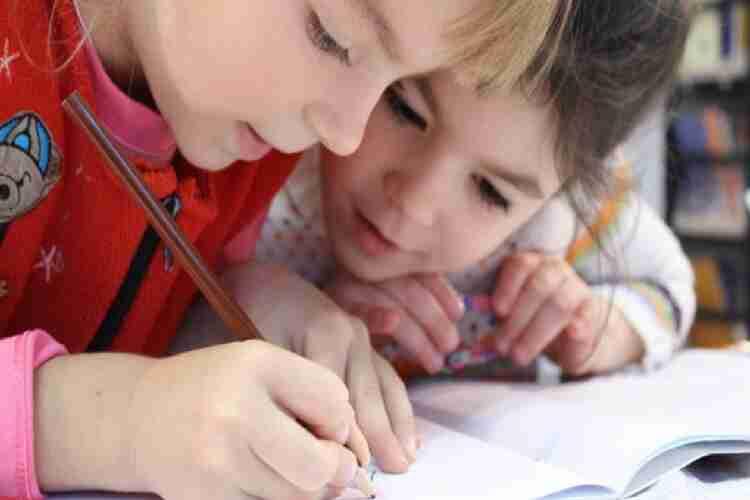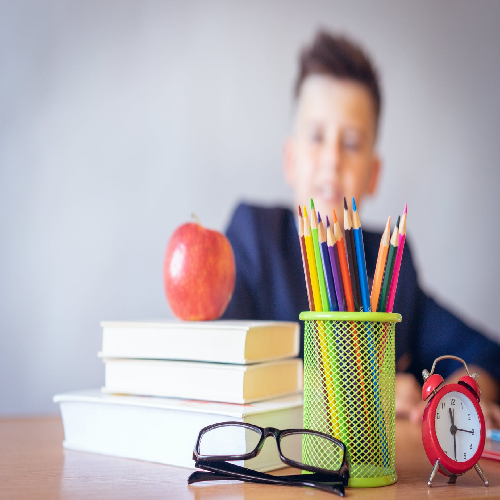What is Project-based Learning? How Is It Helpful? Here’s All You Need to Know


Teacher “ Turn to Page 54.”
Today’s topic is about Determination of the boiling point of an organic compound. Once we are done with this chapter, we will head to the chemistry lab to conduct experiments on this. Students using a thermometer and boiling tube, record observation after heating water & other liquids. ”- What you see is a class of the 80s.


Fast Forward to the Present Time
the teacher discusses with students on what the topics “driving questions” should be, children, do an experiment together. Then go deeper into the investigation by adding salt and seeing whether that makes any difference to the boiling point “. Students are encouraged to look at the problem from different viewpoints and to investigate and question before answering.
Take Another Example
The teacher asks the student to “Design a container” that curbs the milk from boiling thus avoiding the ubiquitous spillage problem. In the process of designing the vessel, the student is not only studying the boiling points but also exploring deeper into why milk boils over and water does not.
We have certainly moved from the didactic and entirely lecture-based teaching to which is popularly known as Project-Based Learning.
What is Project-based Learning (PBL)?
Here is a simple explanation – A student is given a problem. The facilitator asks probing questions. The student explores a way to arrive at the right solution.
PBL, the best technique or are we missing out on something?
Let’s pause for a moment, and look at this from the perspective of every student. Let’s say a student was curious to try this experiment with milk. Teacher discusses what will happen. Which is a good way to approach it? Another student has never seen milk being boiled in her house. So there is no way she could relate to it. And there is this other student who had a doubt on how much salt has to be added to bring about considerable changes in the boiling point. But that question was never asked because he was too shy to ask.
Every Kid is Different
We are talking about children with different knowledge levels, different learning styles and different personalities all in the same classroom.
PBL is a powerful teaching technique. But it is wrong to say that PBL is the best way and everything would be better if only we switched to project-based learning. There is more to it than meets the eye.
Also Read : Must-Read Books For Your Kid During The Quarantine
Success Factors for PBL
- Taking the role of a facilitator -Teacher plays an important role in the PBL process of instruction. The learning outcome is entirely dependent on the teacher.
- Secondly, if the project isn’t given time and attention to take hold, it will result in teacher frustration and it will be just another initiative come and gone
- PBL does not hold water unless the teaching method is customized based on every student’s learning style and that can be only possible if 100% attention is given to each student.
- How it is assessed has an important role to play in the success of this method. Is it a skill-based assessment? Does your child get a report card which says where exactly he faltered during problem-solving and how much creativity he has? Does his teacher keenly observe him on these parameters and drive discussions accordingly?
Challenges in Implementing PBL
Even if educational institutes adopt the PBL way of teaching, there are challenges in implementing it. Most of the schools are still teaching using traditional methodology. There are some strong reasons why schools are failing students
Student journey to learning is all about grades, and that is a roadblock to learning!
Purpose of Education
If we look at the overall purpose of education, it is not about the way the children learn, it is not about how many field trips they go to, it is not about the success or failure of PBL projects in the classroom. It all boils down only to grades.
Every year, the papers are out with photos and names of children who topped the X and the XII exam. We talk about how kids are scoring 95% in every subject, we talk about how this year girls have fared better than boys. It is only and only about the marks.
Mass Learning
It does not end with “mass learning” in a school environment. As the child moves from school to college he gets into the more rigorous form of grading with competitive & entrance exams. We are all a part of the Perfect Grade bandwagon and convinced that top marks are a ticket to elite graduate schools and lucrative job offers.
The Interest of the Student
A student interested in medicine need not always become a doctor. He may be better at research. Probably being a Biological scientist may be a better option. A mechanical engineer may be more suited for Investigating equipment failures & faulty operations rather than fixing bugs in the software.
Not realizing an individual’s entire potential and not recognizing where true interests lie is a problem that stems from our education system.
Perfect Grades, is it a True Reflection of Brainpower and Core Internal Strengths?
Do our schools follow an approach to teaching not just academics but with emphasis on soft skills that are specific, contextual, socially observable, easily malleable within the environment of classrooms and schools. Are students graded on how resilient they are, on their positive outlook, on how determined they are to solve a problem until they arrive at a solution? If not, can we say that these grades are a complete reflection of what your child does?
Come to think of it are schools working on an individual level to develop these very important core life skills?
Is Our Education Helping Kids to Prepare for Jobs of the Future
Jobs of the future need skills such as problem-solving, creative thinking. Is the curriculum and teaching method followed in school guarantee an overall development in children? Are they shaping students to take on jobs which do not exist at this point but maybe in demand 10-15 years now the line?
Here are Our Solutions
Sense of Urgency in Parents to Work on a Solution
According to WHO, suicide is the second leading cause of death among 15-29-year-olds globally. Stress, Anxiety and forced career choices, fear of failure, and the general stigma attached often push students towards the extreme step.
There have been discussions and debates on how the education system is largely responsible for stress and anxiety amongst students. Sometimes, we wonder, is school all about getting grades or a place to learn? A child is in school for 12 years of his life. These are some precious years lost if he does not receive education in a way that will help him develop in every manner possible.
Special Educator Who Are Subject Matter Experts
Integral to the success of a PBL program is the role of the Special Educator. The special educator’s performance as a facilitator is a prime determinant of how a student performs. Unlike the traditional teaching methodology, the facilitator’s role in PBL is to reason through the problem rather than giving a lecture on the problem.
He asks important questions, he puts the problem in context, priorities issues. He can only do this if he has a good grasp of the subject. In fact, the essence of PBL lies in arriving at the Driving Question. A traditional approach specifies the problem. In the PBL approach, the students have to decide what they would be working to answer or to explore.
The driving question defines the scope of the project. Unless the teacher is an expert in the subject, the very foundation of the PBL will be weak.
Personalized Individual Attention
With the PBL approach in The Real School Of Montessori, every student gets personalized individual attention. Engagement factor is at its peak in every session. The educator understands his student’s strengths, his weaknesses, his areas of interest. He uses this knowledge towards facilitating the class. This is the kind of attention that is absolutely missing in schools.
PBL Approach Helps
Studies have proved that the PBL approach has helped with
- Improving grades
- Developing personality
- Life long learner
- Developing curiosity
- Problem Solver
All in all makes the student “more than” ready for jobs of the future!
Also Read : Multi-Disciplinary Approach that Boosts Learning Outcome to the Next Level
Recent Posts
What are the Advantages of Online Teaching at The Real School?
In the article -"What are the Advantages of Online Teaching at The Real School?" we…
What is the Full Form of School?: Unveiling the Acronym
The term "school" carries profound significance in the realm of education, representing more than just…
What is Math Full Form?: Cracking the Code
Mathematics, often referred to as "Math," is a subject that elicits various reactions from students…
What is Full Form of Homework?: Decoding Academics
Homework, an integral part of the academic journey, often raises questions about its purpose and…
What is Full Form of Teacher?: Demystifying Education
In the intricate tapestry of education, teachers stand as the pillars shaping the intellectual and…
What is Real Education?: Discovering Its Essence and Impact
The concept of real education is evolving, transcending traditional views that equate it solely with…


